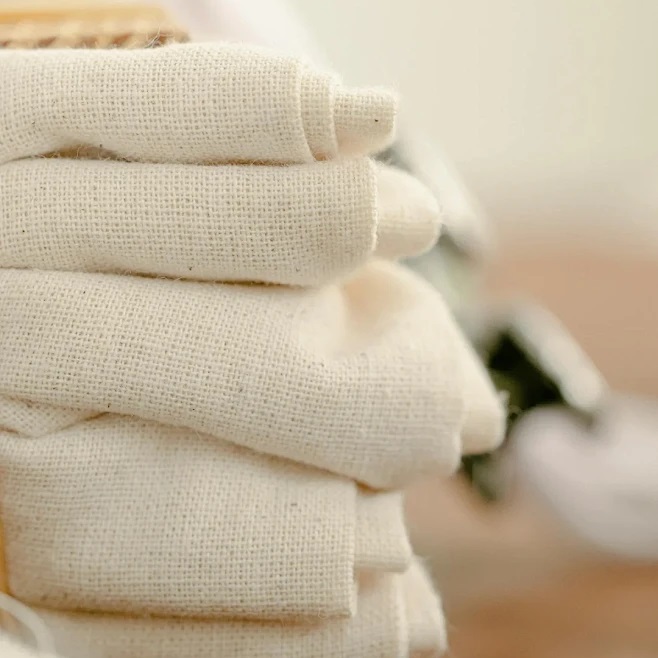Eco-Friendly Fabrics: A Guide to Sustainable Fashion

Imagine creating beautiful clothes that not only look good but also help protect the planet. More and more people are choosing eco-friendly fabrics because these materials reduce pollution, save water and support ethical production. If you want to make your next collection more sustainable, this guide will introduce you to the best options, explain what makes them special, and show you how to find the right supplier to bring your vision to life.
What Are Eco-Friendly Fabrics?
Eco-friendly fabrics refer to textiles produced with minimal environmental impact throughout their lifecycle. Unlike traditional fabrics, which often involve heavy pesticide use, large water consumption, and toxic chemical treatments, sustainable textiles are created with renewable resources, lower water and energy usage, and safer dyeing processes. These fabrics help reduce pollution, conserve natural resources, and often feature certifications that ensure transparency and accountability in their manufacturing.
Recognizing the importance of verified standards, many eco-conscious brands seek fabrics certified by organizations like GOTS (Global Organic Textile Standard) and OEKO-TEX. These certifications guarantee that the textiles meet rigorous environmental and social criteria, providing assurance to both brands and consumers.
Common Types
There are many types of sustainable fabrics on the market. But how can you choose the best option for your specific needs? Here are some of the most popular and innovative options:
Organic Cotton
Grown without synthetic pesticides or fertilizers, organic cotton is softer and more breathable than conventional cotton. It requires less water and protects soil health, making it a favorite among sustainable brands.
Linen (Flax)
Derived from the flax plant, linen is naturally durable, highly breathable, and requires minimal water and pesticides to cultivate. Its texture and drape make it ideal for summer wear and eco-friendly apparel collections.
Bamboo Fabric
Bamboo grows rapidly without the need for chemicals and has natural antibacterial properties. When processed responsibly, bamboo fabric offers softness and moisture-wicking qualities.
Recycled Polyester
Manufactured from post-consumer plastic waste, recycled polyester reduces landfill waste and lessens the demand for virgin petroleum-based fibers. It offers durability and versatility, commonly used in activewear and outerwear.
Tencel (Lyocell)
Produced from sustainably harvested wood pulp, Tencel is biodegradable and soft with excellent moisture management. The closed-loop production process minimizes waste and environmental impact.
Organic Hemp
Hemp is one of the most environmentally friendly crops, requiring little water and no pesticides. It produces a strong, breathable fabric suitable for casual wear and accessories.
Organic Wool
Sourced from ethically raised sheep without harmful chemicals, organic wool is renewable, biodegradable, and naturally insulating.
Pros and Cons
Each fabric has its own unique advantages and potential challenges. Organic cotton, for example, provides comfort and familiarity but may come at a higher price point. Linen is highly durable but can wrinkle easily, requiring special care. Recycled polyester is affordable and robust but depends on responsible sourcing to ensure quality and environmental gains.
By understanding these nuances, you can make decisions that align with both your environmental objectives and practical needs.
Certifications and Standards to Consider
When sourcing sustainable textiles, certifications serve as crucial benchmarks. GOTS ensures organic fiber content and social compliance. OEKO-TEX tests for harmful substances, guaranteeing consumer safety.
Practical Sourcing Tips
For brands aiming to integrate sustainability, partnering with reliable fabric manufacturing companies is key. Clear communication about minimum order quantities (MOQs), color customization options, lead times, and quality control protocols helps avoid misunderstandings and delays. Requesting samples and visiting factories, when possible, strengthens trust and ensures transparency in the supply chain.
Moreover, transparency around certifications and traceability supports brand storytelling and consumer confidence.
Conclusion
At FactoTextile, we specialize in offering a wide range of eco-friendly fabrics to meet the unique needs of sustainable fashion brands. As a trusted fabric supplier, we ensure rigorous quality control and offer customization options to help brands bring their visions to life.
If you’re ready to explore high-quality sustainable fabrics, we are here to support your vision for a greener future.
Working With Facto Textile
We promise you:
- A wide variety of high- quality fabrics
- Full range of customized services
- Professional production technology
- Sincere Cooperation
Contact Us To Start Your Fabric Project
Please send us your message, we will reply within 20 hours.
